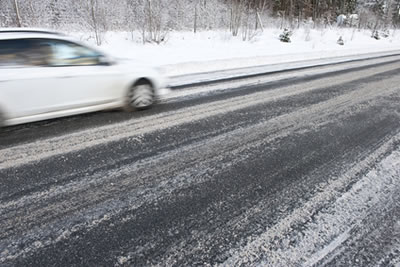
You can get the best fuel economy out of your vehicle by being more attentive and taking care of some fundamental aspects that can make a world of a difference.
When it comes to cars, whether two wheels or four, who doesn't like to get some good fuel mileage out of them? In these days of high fuel prices, maximum economy simply translates into maximum savings. However, getting the most out of your car doesn't have to involve skipping the fun, using expensive fuel additives or carrying out any aftermarket modifications. You can get the best fuel economy out of your vehicle by being more attentive and taking care of some fundamental aspects that can make a world of a difference.
Tyre Pressure
This is one of the most basic things you need to take care of. Maintaining the correct Tyre pressure has several benefits including longer Tyre life, better handling characteristics and ride quality as well as more fuel efficiency. It is very important that the manufacturer recommended Tyre pressure is maintained at all times to provide the best experience the vehicle has to offer. Under-inflated Tyres may offer more grip, but the larger contact patch creates more drag and hence, lower fuel economy and reduced Tyre life. Over-inflated Tyres will give you better fuel economy, but grip and handling may take a turn for the negative. Also, you risk putting the Tyre under unnecessary stress at high speeds which could lead to more heat generation and unwanted expansion of the air inside that can even cause the Tyre to burst.
Fuel and Oil Quality
Now, this does not mean putting race quality high octane fuel and very expensive engine oil, but rather, sticking to one particular brand of each. As far as possible, locate a petrol station, preferably a 24-hour one, that's near to where you live, or on your regular commute. Opt for the same premium or super-unleaded fuel every time you go in for a refill. Also, use the manufacturer recommended grade of engine oil, or one that is a notch higher and provides better a viscosity range, and ensure you use that very oil every single time your engine is due for an oil change. This consistency in quality keeps the engine and fuel system healthy and ends up giving you not just good fuel efficiency, but improved performance overall.
Overall Weight
This is one of the things people don't realize can hamper fuel economy. Many of us like to keep a lot of stuff inside the car, and sometimes, some of the heavier bits end up in the boot. The more the car weighs overall, the less economical it will be.
Avoid installing heavy items onto your car, like heavy bull bars for crash protection up front. The same goes for high output electrical accessories as well. Only install and use extra fog lamps if you live in places where fog or heavy rain fall occur regularly. More drain on the battery and alternator, means more work for the engine, and in the end, higher fuel consumption.
Riding/Driving Habits
This is the key to economy. Whatever the vehicle we drive, whether a twin-cylinder motorcycle or an eight cylinder SUV, the way we use the clutch, brake and throttle pedals can make all the difference when it comes to not just fuel economy, but the life of several parts. Sudden use of the brakes and the throttle not just burns more fuel, but also puts tremendous loads on the driveline, the braking system and the Tyres, reducing their life span and moving their way higher up your list of expenses.
Try not to accelerate unnecessarily when you know you will have to brake soon. Avoid revving the engine to its redline before shifting up gears. Look for information about your vehicle's technical specifications and try shifting up near the end of the peak torque band, rather than at the speed where the engine makes maximum power. In case of motorcycles, or cars with manual transmissions, practice downshifting gears for engine braking rather than stamping on the brakes to slow down for corners, and only use the brakes when you have to come to a complete stop
Using the air conditioner is known to use as much as 30% of the engine's power and this can lead to a noticeable drop in fuel efficiency. If it really is hot outside, start the air con on a higher temperature and let it cool down gradually; and make sure all the windows are closed. Besides, sudden changes in temperature aren't good for the human body too.
Maximising fuel economy is a lot easier once you put these simple means into practice. Take care of the little things, and they all add up in the long run. Be it a family hatchback or a sportscar, it isn't what you drive that matters; it's how you drive it!



